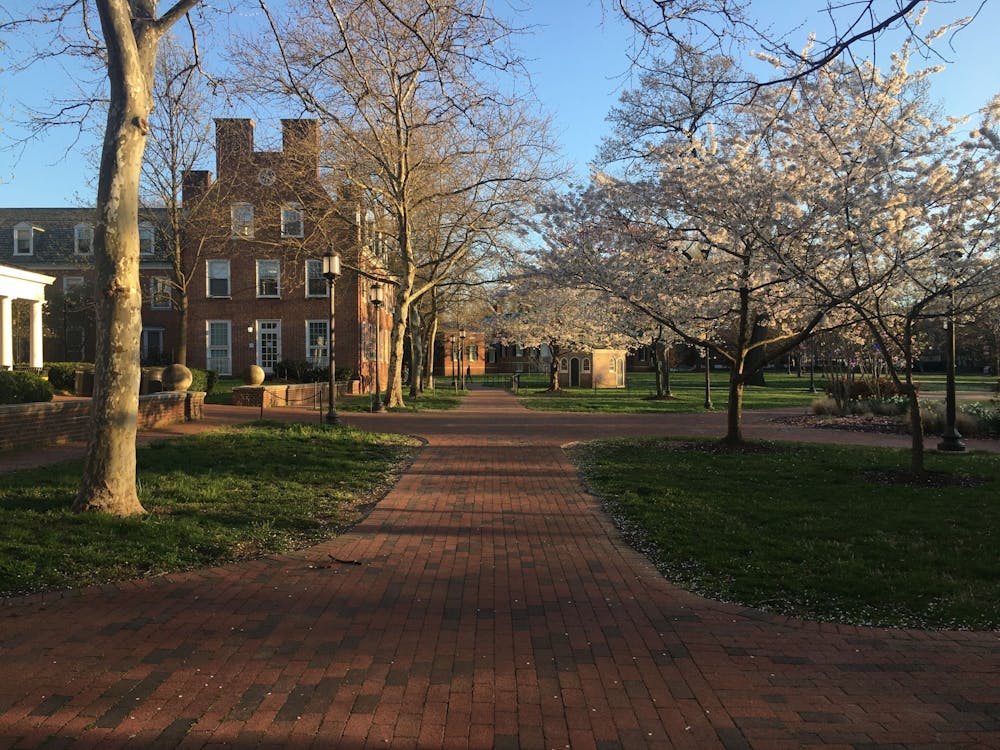Students will be allowed to return to residence halls to begin the move-out process beginning today, May 18. Director Sarah Mansfield of Housing Operations had emailed residential students on May 12 explaining that students may schedule time slots via the housing portal.
The email emphasized that students are not required to return to campus. The University will coordinate with students who do not retrieve their belongings to hire professional movers to pack and store them. For students who have not chosen a time slot by June 1, the University will arrange to have their belongings stored.
Rising sophomore Amara Gammon, currently living with her family in Waldorf, Md., stated in an email to The News-Letter that she plans to return to campus for her belongings. She described the current move-out process as effective, adding that he University could have communicated more effectively in the past.
“Though the process of getting students off campus was really rough, I think the University is doing a lot better with move-out,” she wrote. “They’ve given students a lot of time to get their things, and they have options if you can’t come back to campus. It’s not the best thing ever, but I think JHU is working with what it is has at the moment.”
Gammon, however, noted the financial challenge this update could pose for First-Generation Limited-Income (FLI) students on campus.
“I myself won’t be impacted by this, but I know a lot of other students who can’t go back to campus due to distance or financial reasons,“ she wrote. “Plus, Hopkins hasn’t mentioned whether storing peoples’ things will be an additional fee, along with the cost of the third party movers.”
Mansfield clarified in an email to The News-Letter, that there will be no cost for storing people’s belongings over the summer.
Fellow FLI student, rising sophomore Jashandeep Lobana, who is currently living with his family in Southern California, is glad that students have the option to store their belongings in Baltimore. For many FLI and international students, there was very little choice involved, he said, due to financial constraints and travel restrictions.
“I can’t go back to campus because of financial difficulties—the flights and stuff are pretty expensive,” he said. “Plus, my parents don’t want to risk me going out there and potentially getting sick. I have to choose the storing my belongings option.”
Like Lobana, rising junior Sylvana Schaffer, who is currently living at home in Laguna Beach, Calif., does not plan to return to campus.
“It doesn’t really make sense for me to fly back across the country just to put more stuff into storage at home, like my winter coat,” she said.
On the other hand, Alanna Margulies, a rising junior from New Jersey, is planning to return to campus to retrieve her belongings. She believes that many students may be unaware of the move-out process.
“I’ve had a few friends who, when I’ve mentioned that I’m going to get my stuff next week, don’t even know about move-out,” she said. “The fact that we got one email with move-out information buried in it is not effective communication, and the fact that it took this long on top of that is pretty frustrating.”
Margulies noted that if past communications had been more effective, students would be in a better place now.
“It would have been much easier if, earlier on, we had a better understanding of whether or not we were coming back to campus, how much stuff we should take home, if we were going to be able to get our stuff, if there are options to ship it, stuff like that,” she said.
In her email to residential students, Mansfield noted that the move-out process, which will continue through mid-June depending on the residence hall, was approved by both State and University leaders. She underscored the importance of students’ health and safety.
“We remain committed to a healthy and safe process that adheres to public health guidance for social distancing and cleaning protocols. Move-out will be a highly coordinated effort, and we need your commitment to adhere to our process,” she wrote.
She stressed that students are allowed only one guest during the move-out. Students and guests are required to provide and wear masks and should frequently sanitize surfaces, limit the number of moving bins and adhere to social distancing guidelines in elevators and hallways.
Students who decide not to return to campus will be responsible for returning their room keys via mail with a postmark no later than June 1. According to the University’s move-out information page, those who neglected to do so will be charged a lock change fee which comes out to $125 for the room key and an additional $15 for the mailbox key.
Schaffer believes that the current plan is ideal under the circumstances. Although she was disappointed with how the University handled communicating the move-out process in the past, she appreciates that administrators responded to students’ concerns about professional movers packing their things.
“I’m just glad that at least now we’re getting a choice,” she said. “This is honestly one of the best things they could do given the situation.”





